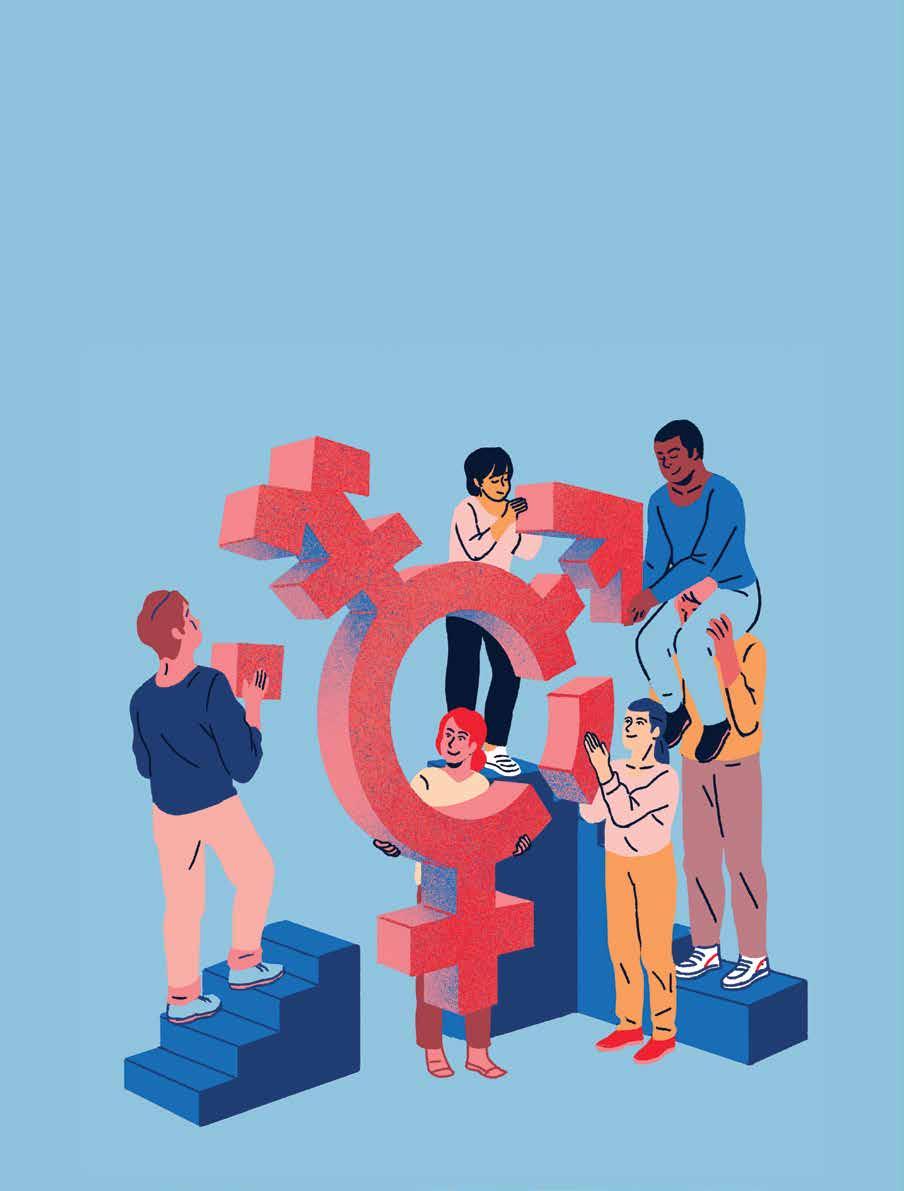
4 minute read
A fight for justice
by Claire Loewen
Members of the McGill Law community step up for trans, non-binary and intersex Quebecers
Advertisement
1 2
On a cold day in late January, tears were shed when the Superior Court delivered its judgment in Centre for Gender Advocacy v Attorney General of Quebec. The court declared six provisions of the province’s Civil Code unconstitutional for violating the equality rights of trans non-citizens, trans youth, intersex people, trans parents and non-binary people in Quebec.
It was a long-awaited and hard-fought victory for trans, non-binary and intersex people, and those advocating for their fundamental rights. Indeed, D Tourki, a former advocate and public educator at the Centre for Gender Advocacy, spent years fighting for the rights of trans people in Quebec. She coordinated research projects, organized marches, published articles and spearheaded the lawsuit, with the Centre for Gender Advocacy as the lead plaintiff, alongside four co-plaintiffs. Tourki’s activism focused on trans noncitizens and migrants.
Notably, no fewer than nine of the lawyers involved in the case were McGill Law alumni, a testament to the faculty’s longstanding commitment to social justice and sensitivity to law’s effects on marginalized people.
Among these alumni were lead counsel for the Centre for Gender Advocacy and the individual plaintiffs, Audrey Boctor, BCL/LLB’05, of IMK LLP; Michael Lubetsky, BCL/LLB’09, Joseph-Anaël Lemieux, BCL/LLB’16, and Faiz Lalani, BCL/ LLB’14, of Davies Ward Philips & Vineberg (for intervener Egale Canada Human Rights Trust); Geeta Narang, BCL’00 (now a Superior Court judge), and Julien Delangie, BCL/ LLB’16, then of Narang & Associés (for intervener Coalition of LGBT + Families); along with Michel Bélanger-Roy, BCL/ LLB’17, and Jérémy Boulanger-Bonnelly, BCL/LLB’15, of Norton Rose Fulbright (for intervener Gender Creative Kids).
While the litigation was substantially successful, the judge rejected two claims, regarding parents’ ability to block a change of name application by a trans youth aged 14-17 and the requirement to always designate the male or female sex in birth registration. The challengers and defending government have appealed aspects of the judgment.
Tourki recalls a bittersweet feeling when the decision was rendered. “It was a very happy moment, but after a few days, you start to realize that you had to go to court to correct documents that recognize people’s identities. This should have been done a long time ago,” Tourki said. “Many people were stripped of basic rights for too many years.”
After working on the case alongside McGill Law alumni — including Boctor co-plaintiff Samuel Singer, BCL/LLB’09, LLM’11, a law professor at the University of Ottawa — Tourki was herself inspired to study law. She enrolled in the first year of the BCL/JD program the next year. “I attended the trial and developed a passion for the legal work,” Tourki said. “Audrey and Sam were very supportive. The fact that Sam and other advocates have studied law has paved the way for others, like me.”
“The victories in this decision are the result of decades of advocacy work by community members,” said Professor Singer, a long-time advocate for trans rights. “We are grateful to our trans, non-binary, and intersex supporters and advocates, our allies, our lawyers, and our friends for their dedication to fighting for our rights.”
In June, Singer received the Canadian Law and Society Association (CLSA) Article Prize for his paper “Trans Rights Are Not Just Human Rights: Legal Strategies for Trans Justice,” which argues that human rights law is only one of many legal tools necessary to address the legal challenges facing trans people. The article appeared in a special issue of the Canadian Journal of Law and Society on the theme, “On the Margins of Trans Legal Change,” funded by a Social Sciences and Humanities Research Council connection grant secured by Dean Robert Leckey, with Singer as co-applicant. The special issue includes an introduction co-authored by Leckey, an article co-authored by Tourki, and an article by Florence Ashley, BCL/LLB’17, LLM’20.
“Trans, non-binary, and intersex communities have been fighting for equality for such a long time, and this case is really part of that — though it is by no means the end,” Boctor said, adding that she felt fortunate to work with the Centre for Gender Advocacy, the individual plaintiffs, experts, fact witnesses, interveners and their counsel.
“There was so much expertise and experience to draw upon and everyone worked incredibly hard. The courage of the witnesses and the presence of so many community members in the courtroom every day was also incredibly motivating. I am very proud of what we all accomplished together.”










